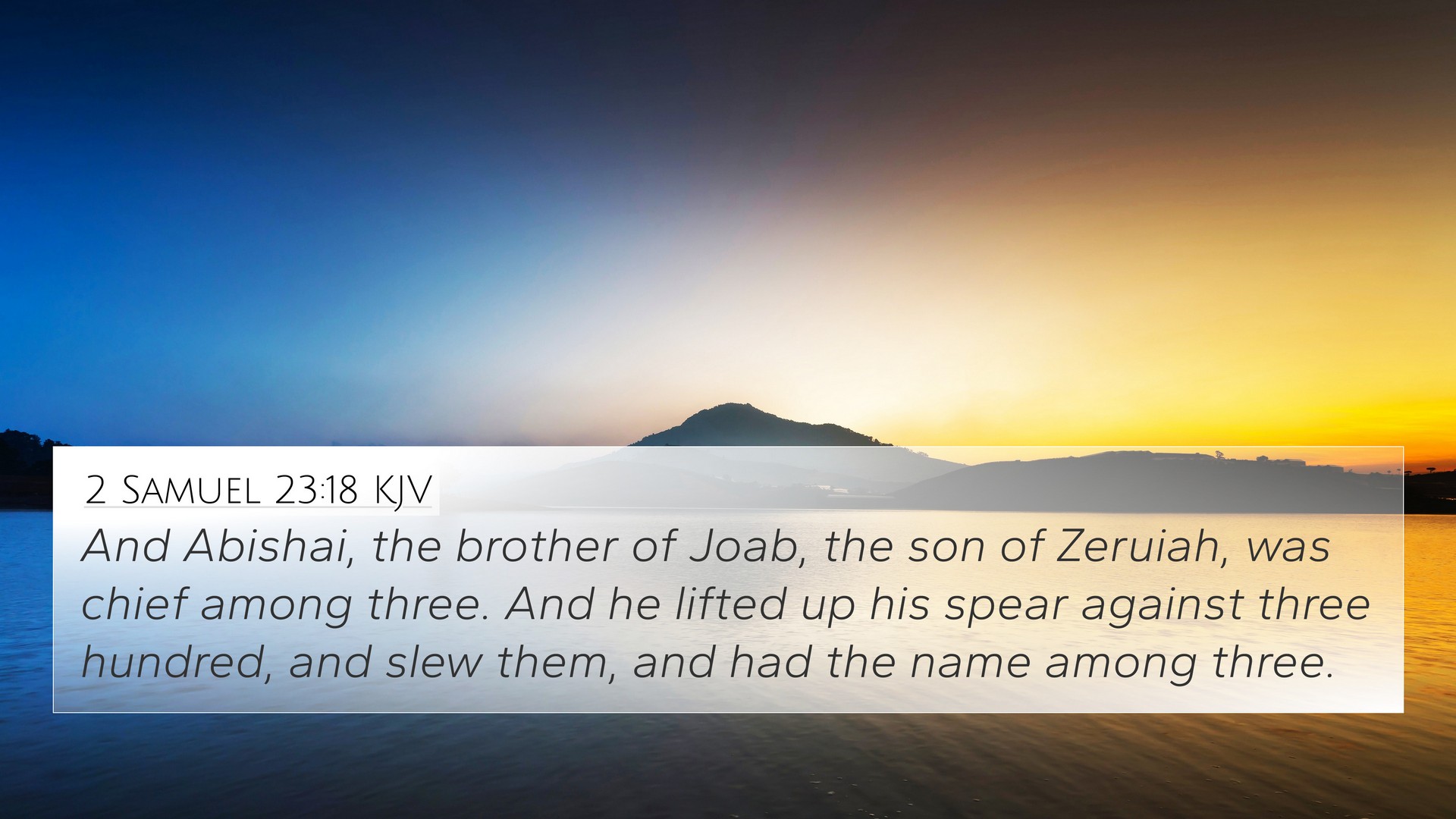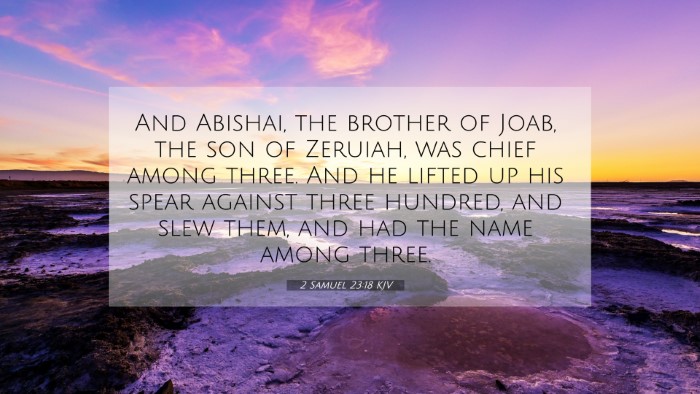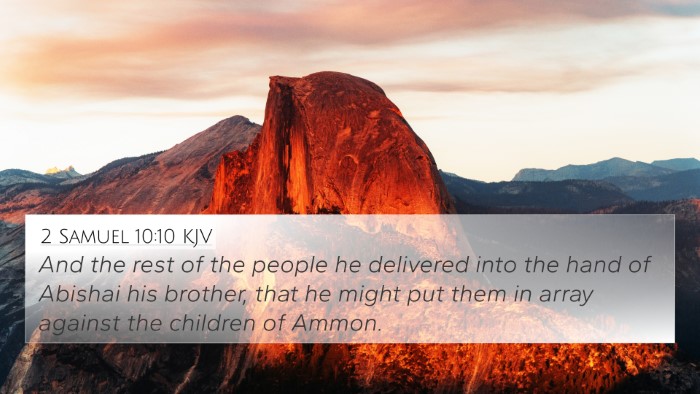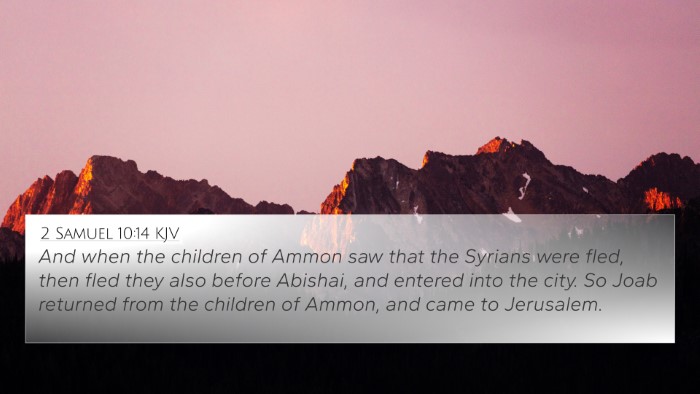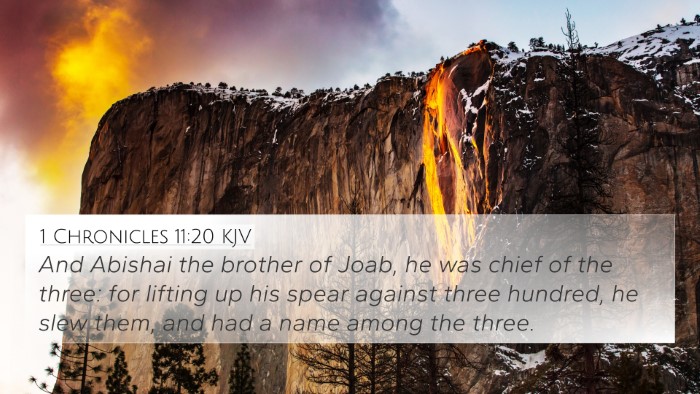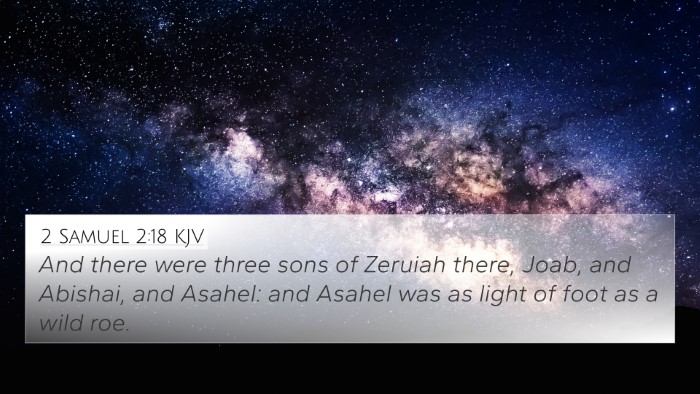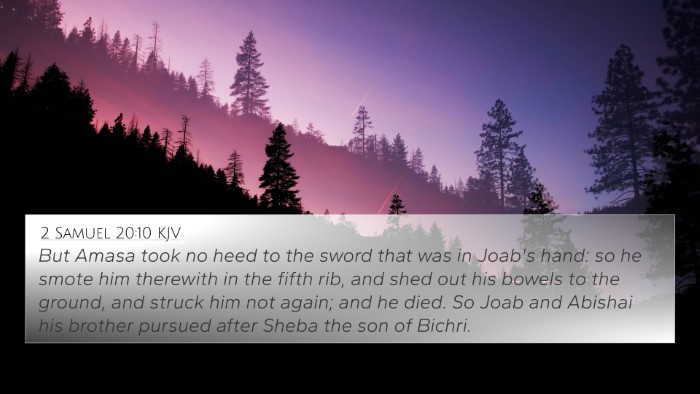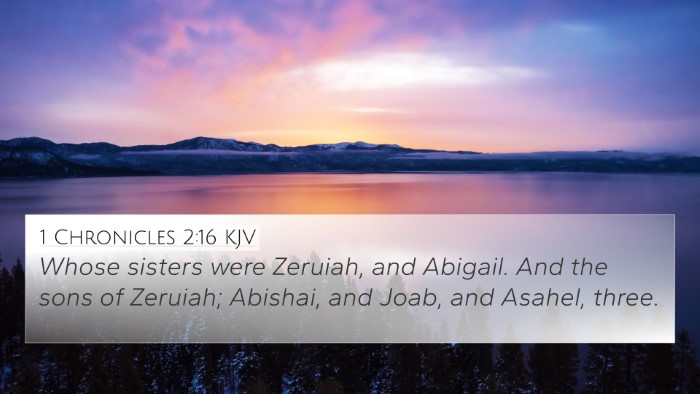Understanding 2 Samuel 23:18
2 Samuel 23:18 states: "And Abishai, the brother of Joab, son of Zeruiah, was chief of the Three. He wielded his spear against three hundred men and killed them, and won a name besides the three."
Summary of the Verse
This verse highlights the valor of Abishai, a notable warrior in David's army. His impressive feat of defeating three hundred men emphasizes not only his strength but also his leadership role among David's elite warriors known as "the Three." This passage serves to establish the significant role that Abishai played within the ranks of David's forces, showcasing his bravery and skill in battle.
Commentary Insights
Matthew Henry's Commentary
Matthew Henry notes that Abishai's achievement reflects not merely physical prowess but a dedication to his leader, King David. His actions illustrate commitment and the ability to elevate one's status through deeds of valor. Henry emphasizes the importance of loyalty and the potential for individuals to gain recognition through their willingness to defend and support leaders during times of conflict.
Albert Barnes' Notes
Albert Barnes provides further insight into Abishai's character, discussing how his exploits not only solidify his heroic image but also contribute to the dynamics within David’s army. He clarifies that Abishai’s victory against overwhelming odds serves as an inspiration to those around him. This narrative also draws attention to the hierarchical nature of David's military leaders, positioning Abishai alongside other notable figures such as Joab.
Adam Clarke's Commentary
Adam Clarke delves into the historical context of Abishai's actions, examining the significance of his victories in the broader spectrum of Israel's military engagements. Clarke emphasizes the concept of honor as paramount in ancient Israelite culture, and Abishai's triumphs illustrate the interplay between personal bravery and collective national pride. His commentary connects Abishai's victories with themes of faith, trust in God, and the essential qualities of effective leadership.
Thematic Connections
The themes present in 2 Samuel 23:18 can be compared and cross-referenced with several other Bible verses that highlight valor, leadership, and loyalty:
- 1 Chronicles 11:20 - Highlights Abishai's similar exploits and further establishes his reputation.
- 2 Samuel 23:9-10 - Discusses the valor of David’s warriors and the significance of their deeds.
- 1 Samuel 14:6 - Jonathan's bravery reflects the same spirit of courage found in Abishai.
- 2 Samuel 22:30 - Illustrates the strength and reliance on God in battle.
- Psalm 144:1 - Expresses praise for God as a trainer of warriors.
- Hebrews 11:32-34 - Mentions the exploits of various biblical figures demonstrating faithfulness and courage.
- Judges 6:12 - Highlights Gideon's call to valor, paralleling themes of bravery.
Cross-Referencing Biblical Texts
Understanding 2 Samuel 23:18 through the lens of cross-referencing can illuminate deeper spiritual truths and connections within scripture. By examining related passages, one can see the consistency of themes regarding courage and leadership throughout the Bible. Furthermore, utilizing tools for cross-referencing can enhance one’s biblical study experience and reveal the interconnectedness of the narratives.
Tools for Bible Cross-Referencing
- Bible Concordance: Useful for finding verses by keywords.
- Bible Cross-Reference Guide: Helps in linking scripture and themes.
- Bible Chain References: A method for tracing topics through different verses.
- Bible Cross-Reference System: Systems that organize scripture references for easy access.
Conclusion
The exploration of 2 Samuel 23:18, supported by foundational commentaries, reveals not only the character of Abishai but also broader theological implications regarding valor and loyalty in the context of divine purpose. By engaging in cross-referencing and comparative biblical analysis, readers can enrich their understanding of scripture, fostering a deeper appreciation for the intricate narrative woven throughout the Bible.
